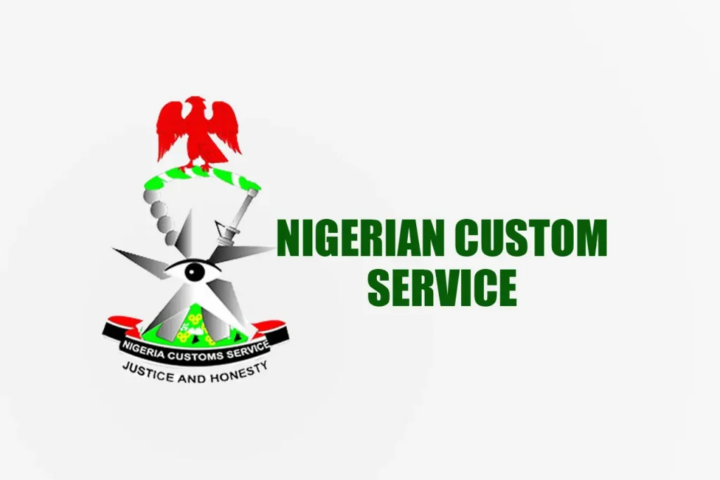The Nigeria Customs Service (NCS) and the Manufacturers Association of Nigeria (MAN) have reached a compromise on how the 4% Free-On-Board (FOB) charge on imports will be implemented, following stakeholder consultations. Under the new framework, various categories of imports will be exempted—particularly raw materials, machinery, spare parts, healthcare goods, and inputs for government projects—while efforts are under way to make the system more predictable and less burdensome for manufacturers.
Comptroller-General of Customs, Adewale Adeniyi, confirmed that manufacturers importing under customs tariff chapters 98 and 99 will enjoy exemptions. Those not yet under those chapters can apply to be “onboarded” to benefit from the relief. Some exemptions also apply to goods used in humanitarian aid, life-saving medical supplies, and spare parts for commercial airlines. Goods already imported or in transit, but charged the 4% rate, will be credited and offset against future transactions after onboarding.

The decision follows strong pushback from manufacturers, who warned that the blanket reintroduction of the 4% FOB levy, effective from August 4, would significantly raise production costs, particularly for businesses relying on imported raw materials and equipment not available locally. MAN had argued that the new charge was higher and broader than the previous regime (comprising a 1% Comprehensive Import Supervision Scheme fee plus a 7% cost-of-collection surcharge), and would jeopardize competitiveness, raise inflation, and encourage under-declaration or cargo diversion.
In reaction, the Federal Ministry of Finance directed the temporary suspension of implementing the 4% FOB charge while a consultative process was held. That suspension allowed for meetings between NCS and MAN to hammer out the exemptions and implementation mechanics. The revised approach aims to balance the government’s need to raise revenue and fund customs modernisation, while protecting critical sectors of the economy from undue impact.
Officials from customs have also highlighted trade facilitation measures being bundled into the new framework. Among them are a reduction in highway checkpoints, faster cargo clearance processes, integration of the digital Unified Customs Management System (UCMS) known as B’Odogwu into the National Single Window, and one-stop shop arrangements to streamline interactions between manufacturers, customs, and other regulatory bodies.
MAN President Francis Meshioye described the outcome of the dialogue as a “milestone” for industrial competitiveness, noting that the adjustments would help lower production costs, improve supply chains, and support Nigeria’s broader goals of industrialisation and foreign exchange conservation. He also urged that the exemptions be clearly communicated to all stakeholders, and that manufacturers be onboarded swiftly to avoid delays and related costs like demurrage.
However, challenges remain. Some manufacturers have reported logistical bottlenecks associated with the B’Odogwu platform, including system glitches and delays in pre-clearance of consignments. To address this, customs has pledged to support the resolution of these technical problems and ensure that the digital platforms perform reliably, to avoid imposing hidden costs on businesses.
Economic analysts have weighed in, saying that while the exemptions and consultation represent progress, much will hinge on consistent application of the new rules, transparency in how manufacturers are onboarded, and the ability of customs to maintain trade facilitation while fulfilling its revenue and security mandates. The use of chapters 98 and 99 for identifying eligible manufacturers is welcomed, but some businesses outside those tariff headings remain concerned about their inclusion.
Another concern raised is how the cost credit mechanism will work in practice for manufacturers who paid the 4% charge before being eligible for exemptions. Clarity is needed on how quickly the credits will be recognized and applied in future customs transactions, to avoid liquidity strains and uncertainties that could slow production or importation.
Moving forward, the NCS and MAN have agreed to maintain regular consultative meetings so that policy changes are communicated ahead of enforcement, and feedback from the manufacturing community is taken into account. Also promised is a periodic review of how the FOB charge and its exemptions are operating, to ensure that the policy continues to support economic growth, trade competitiveness, and inflation control.
If managed well, this new framework could ease the cost pressures on manufacturers, reduce import costs of essential inputs, help stabilize product prices, and reinforce Nigeria’s objectives of promoting local production, employment, and more self-reliant value chains.
Support InfoStride News' Credible Journalism: Only credible journalism can guarantee a fair, accountable and transparent society, including democracy and government. It involves a lot of efforts and money. We need your support. Click here to Donate
